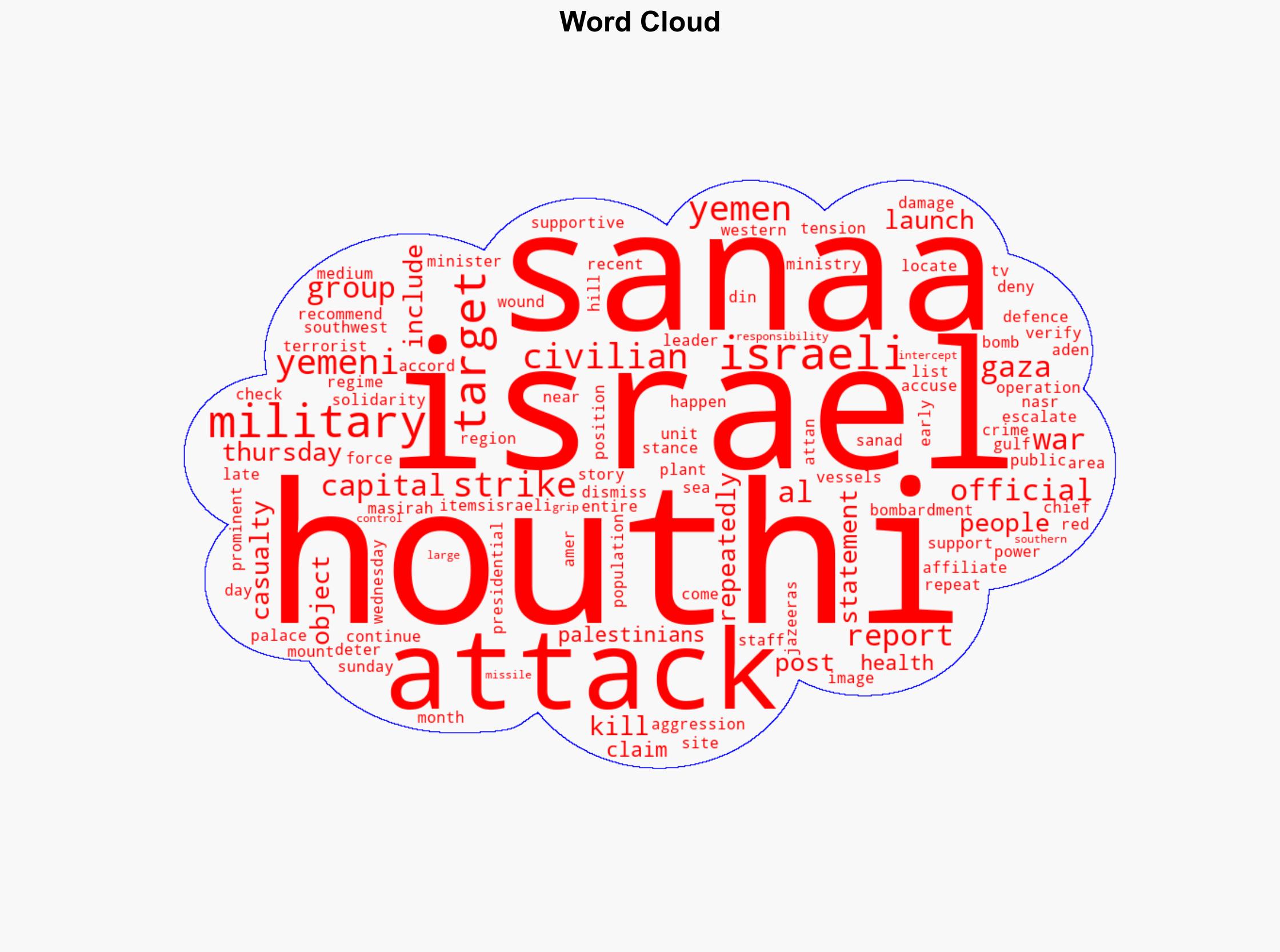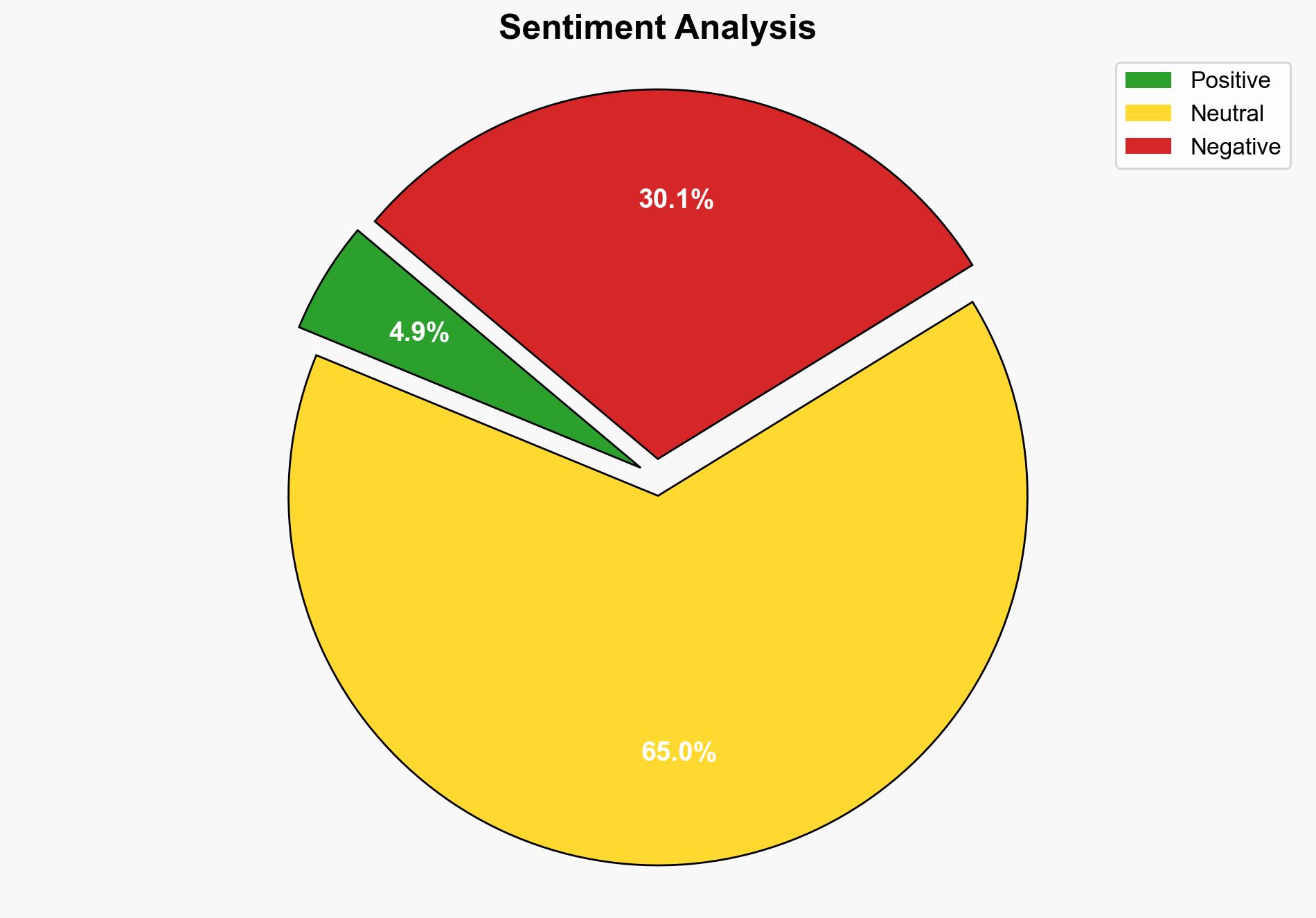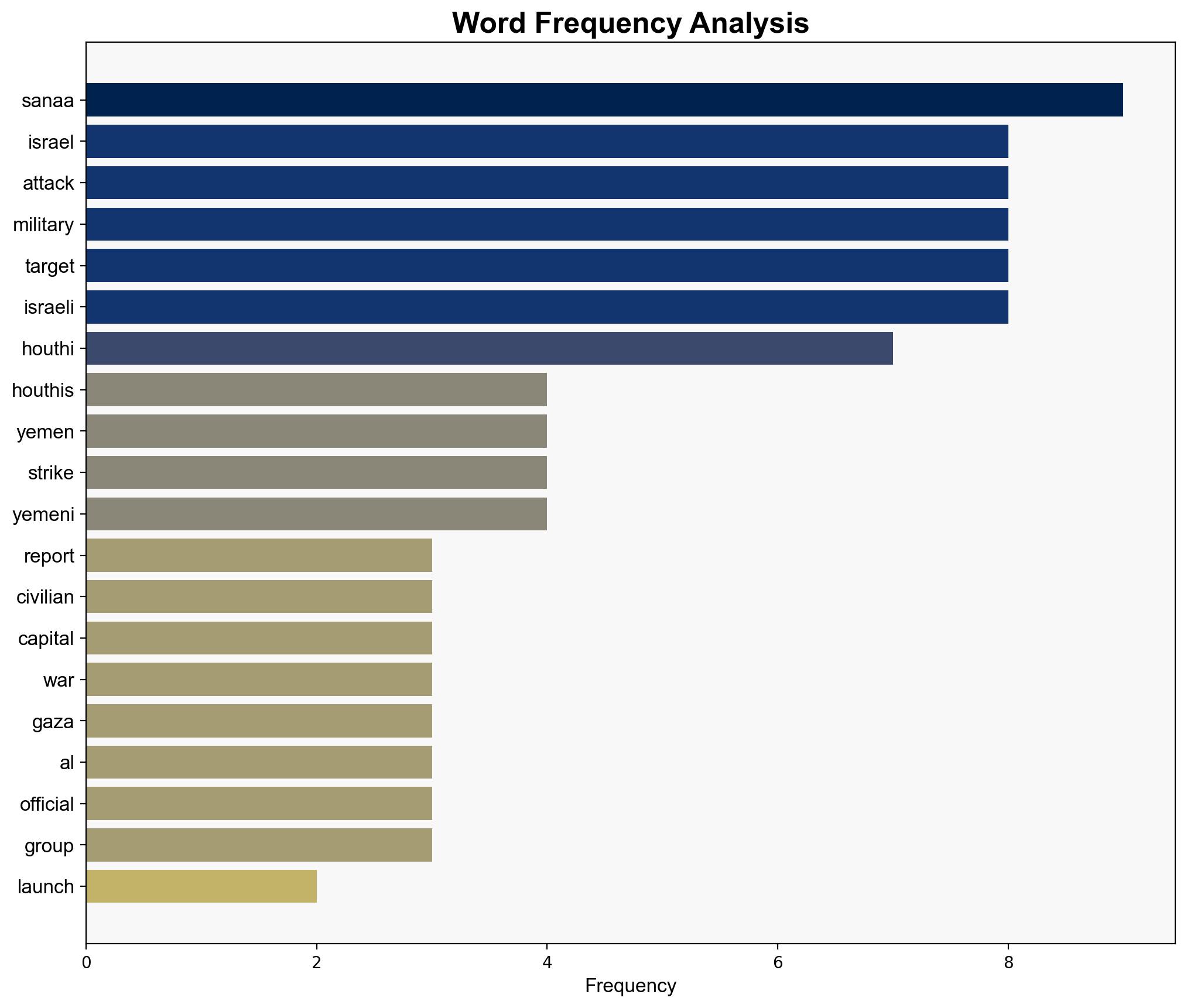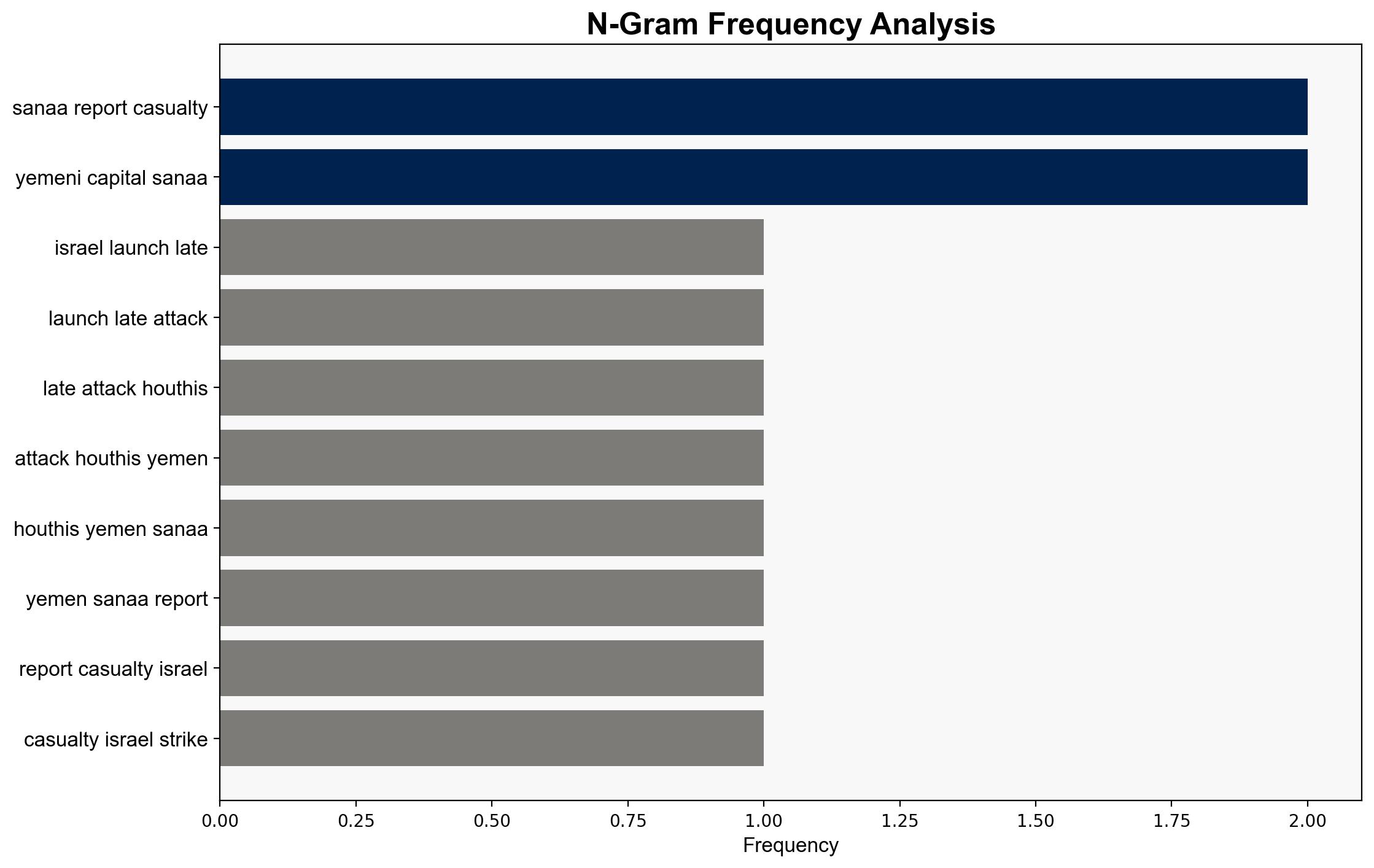Israel launches latest attacks against Houthis in Yemens Sanaa – Al Jazeera English
Published on: 2025-08-28
Intelligence Report: Israel launches latest attacks against Houthis in Yemens Sanaa – Al Jazeera English
1. BLUF (Bottom Line Up Front)
The most supported hypothesis is that Israel’s attacks on Houthi targets in Yemen are primarily aimed at neutralizing perceived threats to its national security and deterring further Houthi aggression, particularly in solidarity with Palestinian groups. Confidence level: Moderate. Recommended action: Monitor regional alliances and prepare for potential retaliatory actions by Houthi forces or their allies.
2. Competing Hypotheses
Hypothesis 1: Israel’s strikes are a strategic military response to direct threats posed by Houthi missile capabilities and their support for Palestinian groups, aiming to preemptively neutralize these threats.
Hypothesis 2: The attacks are part of a broader geopolitical strategy to assert dominance in the region, using the Houthi threat as a pretext to justify military actions that align with broader regional interests, including deterring Iranian influence.
Using ACH 2.0, Hypothesis 1 is better supported due to the direct correlation between Houthi missile attacks on Israel and the subsequent Israeli military response. Hypothesis 2 lacks direct evidence linking broader geopolitical objectives to the specific timing and targets of the strikes.
3. Key Assumptions and Red Flags
– Assumption: Israel’s military actions are primarily defensive.
– Red Flag: Houthi claims of civilian targeting could indicate propaganda efforts to garner international sympathy.
– Blind Spot: Limited independent verification of the exact nature of the targets and the extent of civilian casualties.
– Cognitive Bias: Confirmation bias may affect the interpretation of Israeli motives, especially in media reports.
4. Implications and Strategic Risks
– Potential for escalation if Houthi forces retaliate, leading to a broader regional conflict.
– Risk of increased Iranian involvement, given their support for the Houthis.
– Economic implications for global oil markets if conflict disrupts shipping routes in the Red Sea and Gulf of Aden.
– Psychological impact on civilian populations in Yemen and Israel, potentially fueling further radicalization.
5. Recommendations and Outlook
- Enhance intelligence-sharing with regional allies to better anticipate Houthi movements and intentions.
- Engage in diplomatic efforts to de-escalate tensions, potentially involving neutral parties to mediate.
- Scenario Projections:
- Best Case: De-escalation through diplomatic channels, reducing the likelihood of further conflict.
- Worst Case: Full-scale regional conflict involving multiple state and non-state actors.
- Most Likely: Continued tit-for-tat exchanges with periodic escalations.
6. Key Individuals and Entities
– Nasr al Din Amer (Houthi official)
7. Thematic Tags
national security threats, cybersecurity, counter-terrorism, regional focus





